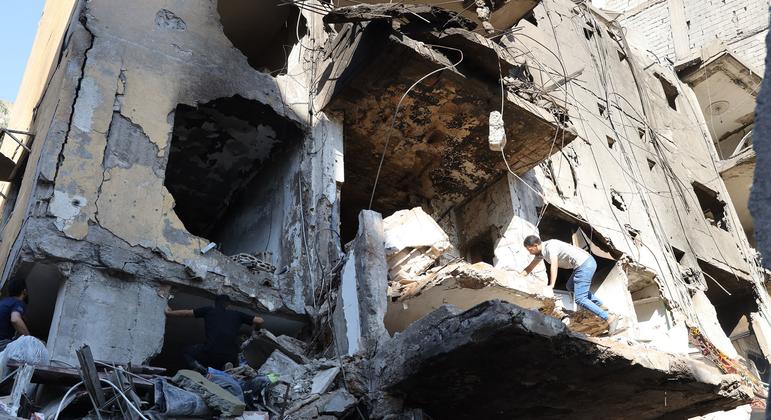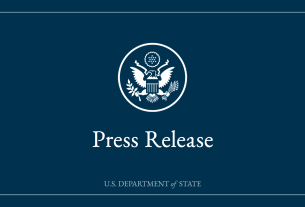In the Lebanese capital, UN humanitarians reported “another night of strikes” and ongoing attacks, as aid workers continued trying to help all those in need. This was “despite their own families being displaced and searching for safety”, said the UN’s top humanitarian coordinator in Lebanon, Imran Riza.
“Another sleepless night in Beirut. Counting the blasts shaking the city. No warning sirens. Not knowing what’s next. Only that uncertainty lies ahead. Anxiety and fear are omnipresent,” said Jeanine Hennis, UN Special Coordinator for Lebanon.
In an update on Thursday, the UN migration agency, IOM, reported that 1,600 lives have already been lost with 6,000 others injured in recent days. “It is paramount that civilians are protected. IOM is delivering assistance, but continued support is needed,” it said. The head of World Health Organization (WHO), Tedros Adhanom Ghebreyesus meanwhile warned that the death toll “is rising” with hospitals overwhelmed with the influx of injured patients.
Multiple explosions
Among the aid teams already providing help to some of the approximately one million on the move so far, the UN refugee agency, UNHCR, said that the humanitarian toll was “devastating”, while Israeli attacks were continuing to displace thousands.
It insisted that all those caught up in the hostilities in Lebanon “desperately needed” the support of the international community to provide the basics: food, hygiene and medical care.
“We are talking about a lot of trauma and anxiety, so that is going to be huge as well,” said Ivo Freijsen from UNHCR Lebanon, which highlighted the traumatic experience of one young woman, Nancy, who described the scenes around her as “terrifying…We are starting to accept that we could die at any moment…the stress I am experiencing is hard to describe,” she told the UN agency, while one displaced Lebanese woman, Muna, said that she rushed out of her home because “there were 10 explosions at the same time”.
Communities in southern Lebanon have also had to flee the escalating conflict, including Zeinab and Fatima, who were at home preparing to go to school for an exam when the shelling started, at which point they feared their house was about to collapse.
Children’s terror
“My mother told us to pack our things quickly, and we left in a rush,” Zeinab, 14, told the UN Children’s Fund, UNICEF.
Once she and her family reached Beirut after a “terrifying” journey, Zeinab described hearing shelling “all around us” while the “sound of explosions echoed everywhere”.
To help countless children across Lebanon, UNICEF is on the ground delivering urgently needed water, health, nutrition, education services and psycho-social support.
Nearly 130,000 newly displaced people have also been reached by the World Food Programme (WFP) with hot meals, food parcels, bread, sandwiches and emergency cash assistance, the UN agency tweeted.
“As the security situation in Lebanon deteriorates, the need for emergency food is growing rapidly,” said WFP Regional Director Corinne Fleischer, as she called on all parties to continue facilitating humanitarian access.



